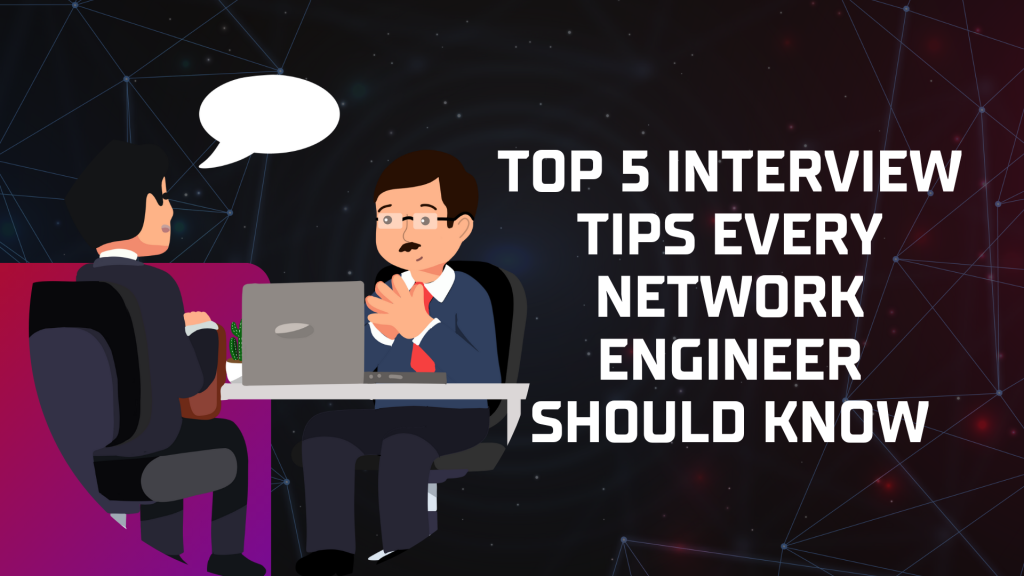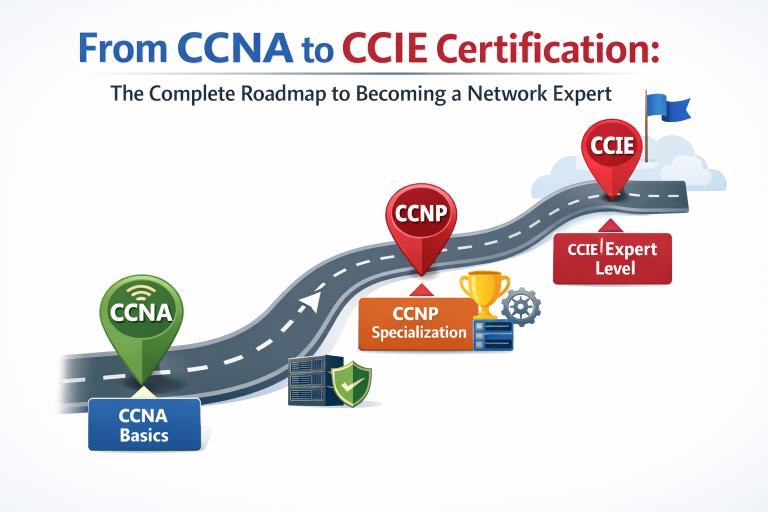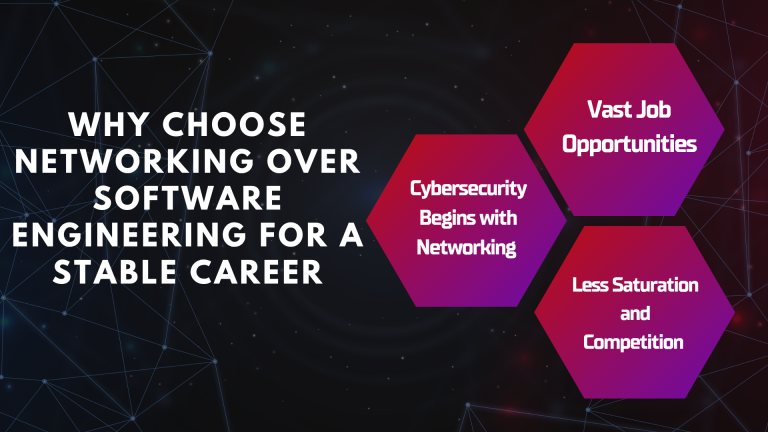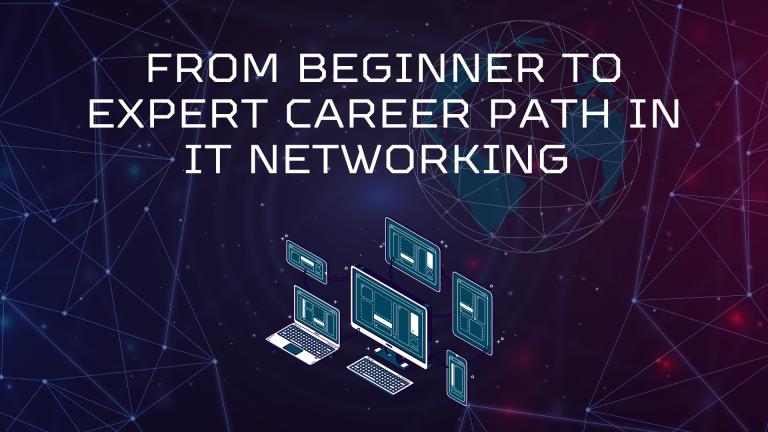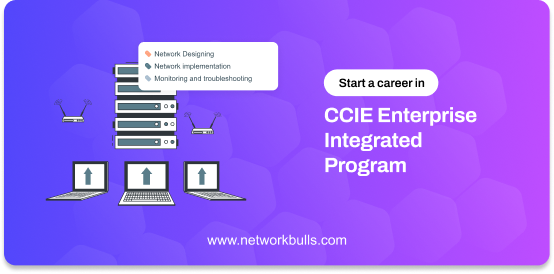Preparing for an interview can be nerve-racking, especially in the tech world, where your communication skills, confidence and problem-solving abilities are as important as your technical skills.
As a network engineer, you might have mastered routers, switches and firewalls – but when it comes to interviews, it’s not just about what you know, but it’s about how confidently you present what you know.
Whether you are a fresher or a working professional aiming for a better opportunity, this guide will help you shine in the next interview.
Here are the top 5 interview tips every Network Engineer should know, explained in a practical and easy-to-follow way.
1. Know the Basics
This might sound obvious, but it’s where most of the candidates go wrong. Many Network Engineers directly jump into the advanced topics like BGP and MPLS – but when they are asked basic questions like, “What is the OSI Model?” or “What is the difference between a switch and a hub?” – they hesitate.
The truth is, your basics are your backbone, because the interviewer often starts with the basics. Every interviewer starts by checking whether you have a strong foundation or not. This is because the most complex problems also come down to basic concepts like IP addressing, routing or troubleshooting layers.
So, before appearing for the interviews, make sure to revise the basic concepts first.
2. Research About the Company and Read the Job Description
Before you walk into the interview room, make sure you know about the company’s history, services and work culture. One of the biggest mistakes that many candidates make is walking in without knowing about the company.
For this, you can start by exploring the company’s website and its “About Us” section. Look at their product, services and client base. If you are a network engineer, pay attention to the technology they use because this will help you to align your skills with the company’s requirements.
In short, researching the company can transform your interview from a question-and-answer session to a meaningful conversation, which shows that you value the company and you have prepared to be a part of it.
This kind of preparation doesn’t just impress, but creates trust, and trust is often the first step for getting hired.
Secondly, reading the job description is also critically important. A thorough understanding of the job description is also a core part of interview preparation. By reading the JD, you can anticipate many of the questions you will be asked in the interview. It gives you a clear idea of the skills, qualifications and experience the employer values most.
Once you understand that, it becomes easy for you to connect your skills and achievements with the requirements of the company. This way, you can give relevant answers. It also shows that you have done your homework and you are the perfect fit for the position.
3. Prepare a Strong Self-Introduction
Preparing a strong self-introduction is a crucial interview skill. Almost in every interview, it is the first question. It sets a tone for the entire interview by establishing a professional identity.
Your self-introduction creates the first impression, so make sure it’s confident, structured and genuine.
There are two main things that an interviewer wants to know by asking this question.
- Who you are.
- Whether you are the right fit for the role or not?
Now, if you have understood this, remember that a good introduction should clearly highlight your background, qualifications and skills in a confident and natural way.
4. Work on Communication and Body Language
When it comes to interviews, how you communicate can be just as important as what you communicate. Many candidates lose opportunities not because they lack technical knowledge, but because they fail to express it confidently. Remember, communication and body language together create a professional image that an interviewer looks for.
You may have a strong technical understanding, but if you can’t express it clearly and confidently, the interviewer might not be able to see your full potential. So, focus on clarity, tone and confidence. Avoid using fillers like “umm”, “actually” or “you know”. Instead, take a short pause when you need to think.
Now, let’s talk about body language. The way you sit, make eye contact, and your gestures leave an impression even before you speak. Walk into the interview room with a calm smile and straight posture that shows confidence. Make steady eye contact and keep your shoulders relaxed. Avoid cross–arms and fidgeting, as these can make you appear nervous and defensive.
In short, your communication and body language should work together to show your confidence, clarity and credibility. When you align your communication with professional body language, you don’t just answer questions, but you connect with the interviewer. And that connection often makes the difference between a good candidate and a memorable one.
5. Stay calm during technical discussions
The technical portion of a network engineer interview can be intimidating. Interviewers will ask you some scenario-based questions in order to check your problem-solving ability. Your ability to remain calm, especially when interviewers dive deep into troubleshooting questions, shows that you can be trusted to handle critical situations in a live networking environment. It’s not about having all the answers but rather demonstrating a solid, stress-resistant problem–solving process.
While facing a tough question, it is normal to feel a little nervous. However, panicking or rushing to answer can create a negative impression.
Instead, ask the interviewer,
“May I take a moment to think about that?”
This short pause not only gives you time to think but also shows that you are quite calm and professional. Interviewers appreciate candidates who can think under pressure, because that reflects how you will behave in real-world networking environments.
Mastering interviews isn’t just about answering questions correctly, it’s about presenting yourself as a confident, knowledgeable and reliable candidate. As a Network Engineer, your technical expertise is your strength, but your communication and confidence are what make you stand out. With the right mindset and preparation, you won’t just face your next interview, but you’ll ace it.
Recommended visit-

